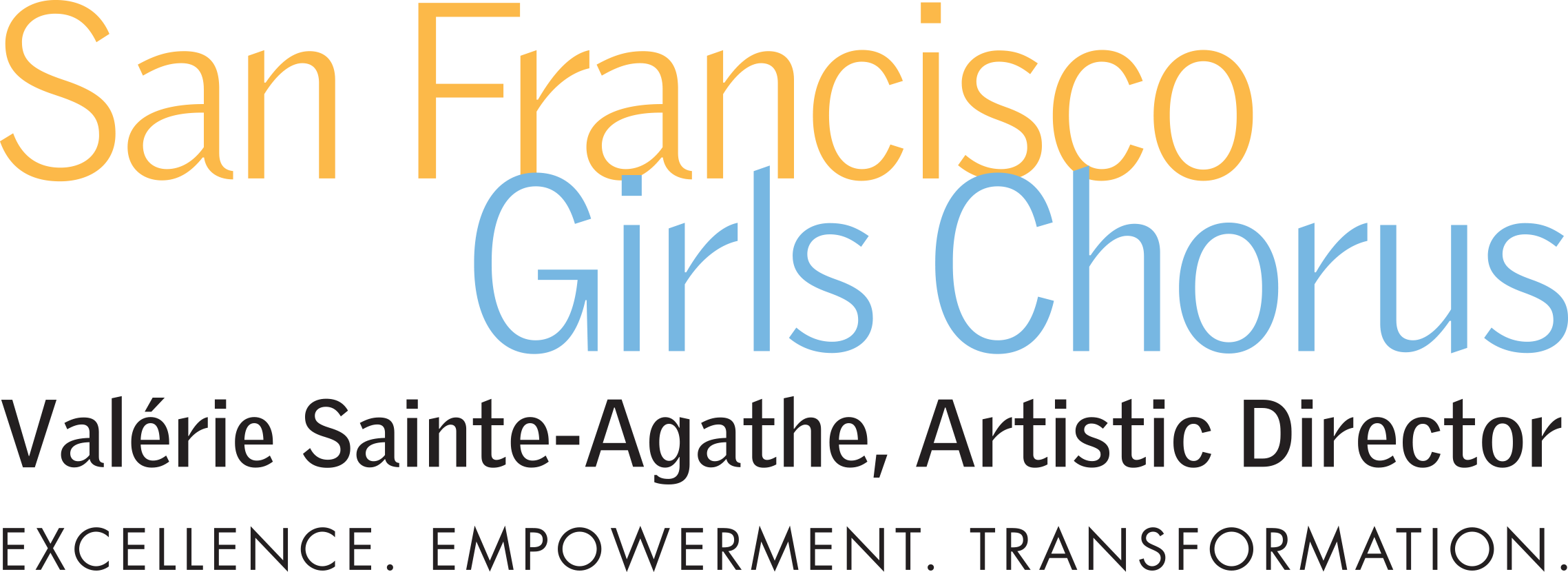Postcard from Magen Solomon
This postcard features Dr. Magen solomon, Artistic Director of both San Francisco Choral Artists and San Francisco Bach Choir. Dr. Solomon works nationally and internationally as a teacher and conductor, and is known for her work in the choral space as well as with living composers. Magen joined SFGC's level IV for a workshop examining five pieces from their repertoire, focusing on programming and stylistic performance practices.
What interests or excites you about choral music?
Not only the astonishing interplay between pitch, rhythm, and text – the unique ability for singers to incorporate concrete meaning, through thought, idea, poetry. It is also the magical property, also unique to choral music, that choral singing is available to anyone regardless of age, physical size, gender, or socio-economic status. No expensive instruments, no multiple years of training. Finally, that it’s a social activity – people sharing music, music with meaning, people connecting in this deep often unconscious way, breathing together, listening to each other, sharing with each other. I sometimes think that if every meeting of elected officials or corporation heads began with singing, the world would be a happier, safer, and less contentious place!
What has been the happiest accident of your career so far?
Well, probably that I found this career at all. My mother was a conductor, so of course I wanted to be different, but a one-week high school project landed me (grumpily at first) spending the week in the Choral Dept of the New England Conservatory. By the end of that week, I’d chosen this career.
What are your values and processes when it comes to programming?
Of course, one has to start with the practical and logistical issues: the repertoire has to be suitable to the vocal ability of the group, the singers’ ages, abilities, interests. It has to be suitable to the circumstances of performances (venue size & acoustics, time of year, expected audience, etc.) and to the amount of time for preparation and availability of resources (scores, accompanists, other instrumentalists, etc). So, I guess my first values are practicality, and a high chance of success. (I’ve found young conductors can be so eager to do X piece that this assessment is missing). When practical considerations are taken care of, my priority is to assemble a program which has a consistent intellectual or musical theme, and yet which is varied in style, mood, language, density, and period -- and one that engages the ear, mind, and heart.
You’ve collaborated with numerous choirs and ensembles as a guest conductor. How do you adapt your conducting style to work with all these different groups?
Well, it depends on what you mean by “conducting style”. If you mean gesture, there is no difference (except perhaps showing every beat for very inexperienced musicians.) If the issue is how to rehearse and perform the music, it depends entirely on the ensemble’s experience and ability. Are the primary challenges correcting notes, rhythms, and text? Or can the group go immediately to subtleties of phrasing? At all levels, however, musicality, phrasing, intention, performance practice, etc. must always be part of the rehearsal. One cannot spend weeks on purely technical aspects and coat it with a thin veneer of musicality right before a concert.
What advice can you give to our singers who may want to try conducting or embark upon a career in music?
For both paths, it’s critical to train your ear continually, become a spectacular sight-reader, continually study music theory and history, develop score reading skills (at and not at the keyboard), explore music in a library (not only on YouTube) and get to know as much repertoire from different periods as possible, and attend as many live concerts as possible (ushering can save lots of money).
For a career in choral conducting, sing in as many ensembles as possible, with as many conductors as possible, take as many conducting classes/lessons as possible (including orchestral), sit in (with scores) on rehearsals with different conductors, study voice, learn the International Phonetic Alphabet, take dance, listen to recordings and study scores of different repertoire from all periods and countries, don’t decide you dislike a piece until you’ve performed it… and about 50 other things!
You’ve worked with SFGC in multiple capacities What makes SFGC stand out as an organization and artistic presence?
The length and breadth of the organization’s offerings to girls of many ages, and a commitment to both education and training, and to high-quality performance.

